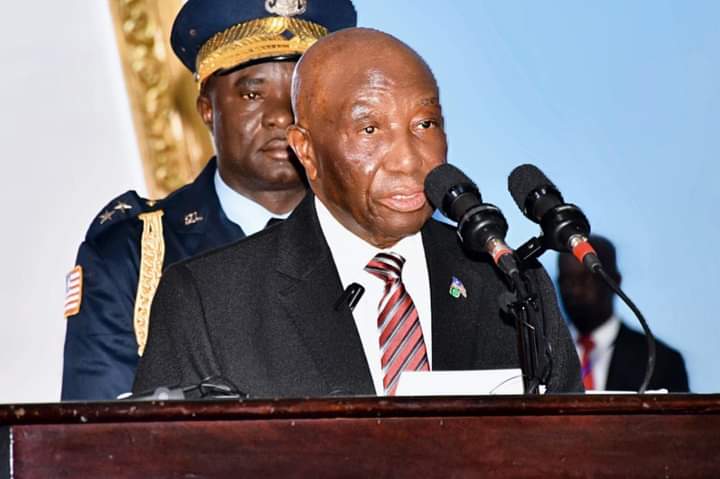In an impactful open letter, Cllr. Tiawan Saye Gongloe, former presidential candidate and leader of the Liberian People’s Party, appeals to President Joseph N. Boakai to abolish graduation fees across all educational levels in Liberia. Gongloe emphasizes that these fees impose a severe financial burden on families and exacerbate existing inequalities in access to education. He argues that the government must take immediate executive action to alleviate these difficulties for parents and students alike, highlighting the connection between educational access and the pervasive issues of crime, substance abuse, and political extremism in Liberia. Given the country’s fragile political and economic context, education is essential for fostering national stability and prosperity, particularly for the large segment of the population under the age of 15.
The demographic landscape of Liberia poses significant challenges for its educational system, with nearly half of the population being children. Gongloe cites data from UNICEF indicating that approximately 16% of primary school-aged children, amounting to over 740,000, are not enrolled in school. He argues that addressing these obstacles is vital in empowering the youth and securing a hopeful future for the nation. The philosophical underpinning of this argument aligns with the words of Nelson Mandela, who asserted that education serves as a powerful engine for personal development and societal progress. In Liberia, however, numerous barriers prevent children from accessing this critical resource, including prohibitive costs related to basic educational needs, which discourage families from prioritizing schooling.
The Liberian Constitution articulates the government’s responsibility to provide equal access to education. While strides have been made—such as the introduction of free and compulsory primary education—significant loopholes remain. Gongloe points out that, despite the intent of free primary education, families still incur costs such as uniforms, school supplies, and other levies that can hinder children’s educational prospects. High costs associated with secondary and tertiary education further exacerbate the problem, compelling families to wrestle under an unsustainable financial burden. The government must not only adhere to its constitutional obligations but also work diligently to eradicate the financial barriers that obstruct equal educational opportunities.
Beyond financial hurdles, public schools often fail to meet adequate educational standards due to insufficient funding and resources. Many schools lack basic infrastructure, while underpaid teachers face challenges that impede their ability to deliver quality education. Consequently, children from underserved communities may abandon their education altogether, opting for menial work or resorting to crime to survive. This cycle of desperation perpetuates juvenile delinquency, a growing threat to the stability of society, underscoring the urgent need for comprehensive reforms in Liberia’s education system. By investing in improved educational frameworks and support systems, the country could break the debilitating cycle that currently traps many young individuals in poverty and crime.
Gongloe’s letter also provides a historical perspective, mentioning that during Liberia’s more prosperous decades in the 1960s and 1970s, the practice of imposing graduation fees did not exist. He argues that the scarcity of jobs today makes this policy particularly unjust and counterproductive. The call for President Boakai to issue an Executive Order eliminating graduation fees is both practical and essential; such an action would alleviate financial stress on families and allow graduation to be a moment of celebration rather than financial burden. This change would also align with the commitment to reform the long-neglected education sector to provide equitable access for all Liberians.
In conclusion, the abolition of graduation fees represents a critical step toward creating a more inclusive educational landscape in Liberia. Gongloe’s argument resonates not just as a call for policy change but also as a moral imperative to invest in the country’s future. By recognizing and dismantling the barriers that hinder educational access, President Boakai has an opportunity to demonstrate a commitment to social equity and meaningful reform. Every child in Liberia deserves access to quality education, a foundational opportunity that will ultimately shape the nation’s path forward. The success of future generations hinges on the actions taken today to foster an environment where education is valued and accessible to all.














